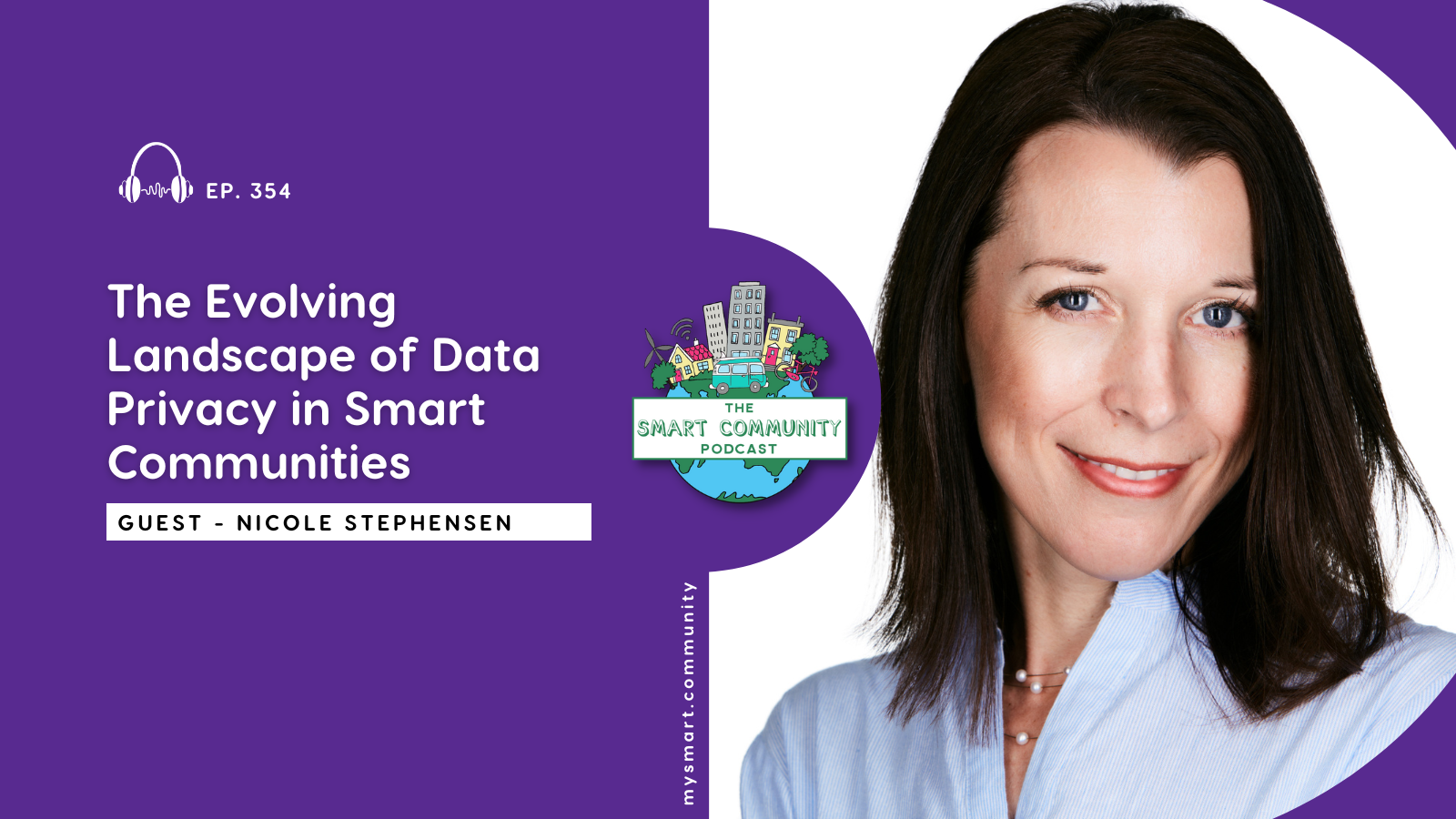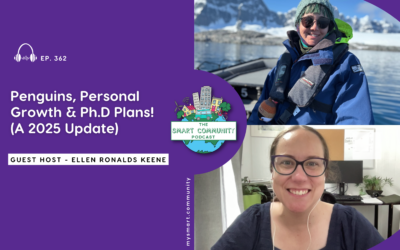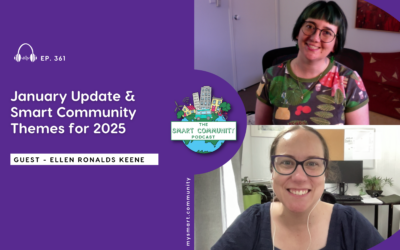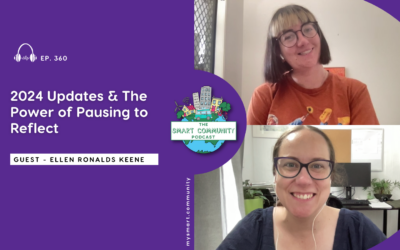Hi #SmartCommunity Friends, in this episode of the Smart Community Podcast, I had a fantastic conversation with Nicole Stephensen, Partner at IIS Partners, a prominent privacy consultancy in Australia, where she leads privacy strategy and services. Long time listeners will remember that Nicole was on the podcast way back in Episode 69, in 2018, and again on our Covid Catch Up YouTube series in 2020.
In this episode, Nicole and I discuss what’s changed in the privacy landscape in the last few years, for better and for worse, including data breaches and the review of Australia’s Privacy Act. Nicole reminds us of the essential principle of “Nothing about me, without me,” stressing the imperative to engage and involve the community in co-designing solutions.
We explore the vital role of public servants in keeping the needs of the community as a focus, and touch on the crossover between information security and privacy. Nicole and I then discuss the pros and cons of privacy laws and regulations, and Nicole advocates for a shift away from ‘incremental change’ in order to keep pace with the speed of technological advances.
We finish our chat talking about the emerging trend of the intersection of privacy and AI, the potential for Smart City and Privacy Standards to be combined, and why we need to rethink the term ‘responsible AI’. As always, we hope you enjoyed listening to this episode as much as we enjoyed making it.
Listen here:
What we cover in this episode:
- Nicole’s background as a privacy professional
- What is a Smart Community to Nicole
- The importance of the “nothing about me without me” principle
- Why it’s imperative to engage and involve the community in co-designing solutions
- The role of public servants and keeping the needs of the community as a North Star
- The opportunities and challenges for small business that came out of COVID regarding data use and customer data privacy
- What’s changed in the privacy landscape in the last few years, for better and for worse, including data breaches and the review of Australia’s Privacy Act
- The crossover between information security and privacy
- The pros and cons of privacy laws and regulations
- Why incremental change is not working well enough to keep pace with the speed of technological advances
- The emerging trend of the intersection of privacy and AI
- The potential for the Smart City and Privacy Standards to be combined
- Why we need to rethink the term ‘responsible AI’
Quotes:
“Privacy doesn’t look the same in terms of what it means from a public policy perspective, or even what it means in terms of digital and data and the way information moves through society and between organisations and governments. It’s all very different.”
“From a local government perspective, it’s about the delivery of services. And it’s about ensuring that the community is satisfied with the delivery of those services and feels that they can continue to trust their government. But it’s also important to remember that not all things that are Smart are tech-driven.”
“As a privacy professional, I often say, ‘is rolling out a new technology the solution to the problem, or are you just looking for a problem to fit the technology?’”
“Whether it’s to do with digital and data, whether it’s to do with technology, or whether it’s just to do with Smart, innovative thinking within the community, I like the turn of phrase, ‘nothing about me, without me.’ And in our communities I think that’s really important. Those who are living in the community are actually the best people to tell decision makers what’s going on in the community, what their needs are, what the focus ought to be, and if information about them is going to be used or leveraged to solve problems in the community, make life better, more mobile, etc. involving them in that process…as opposed to that more paternalistic “we know what’s best for you” way of managing local government, which doesn’t always wash with the community.”
“The idea that people are trading information about themselves—in relation to their experience, their needs, perhaps their abilities, or disabilities, or other factors that affect how they live in their community—when they trade that information with their local government, they’re doing so with an expectation that something positive will come out of that trade. This is the key. In order for [that relationship] to stay positive, there has to be that deep respect for the individual that’s at the heart of the decision making.”
“Information security is about ensuring the confidentiality, integrity and availability of data from an organisational perspective, and securing data and systems. But it is concerned with privacy, where the data is also personal information, then you look at the complimentary discipline of privacy. Privacy is about making sure personal information, from the time it is ingested into the organisation or the government until the time that it is deleted or securely destroyed, that it is kept safe through that process…It’s actually a really wonderful move where privacy and security are not really in silos anymore. They’re actually interlinked and incredibly complimentary.”
“I’m not sure incremental is working really well with privacy and cyber. I’m not sure that incremental is actually doing what it needs to do, I actually think that we need to draw a line in the sand and say, ‘okay, there needs to be a shift here, we need to do it now.’ And everyone’s gonna have to take a leap at the same time. And while it’s awkward, while it’s painful, and there’s that old adage, ‘if it’s not broken, why fix it?’ But I actually think it is broken. It is, and we don’t know that. It’s just that we haven’t had a data breach yet. But it’s coming.”
“Privacy professionals are divided here. Some think it’s good, and it’s a way of innovating the privacy problem, and others think it just exacerbates the privacy problem. And it creates divisions in our community a greater, more yawning gap between our community and their governments. And to your point about being in the public service. The point about cities is that they are to serve the community. And one of the areas that we serve our community is through good information practice, and strong privacy and cybersecurity controls.”
Links:
SCP Episode 69 with Nicole Stephensen
Catch Up Conversation with Nicole during Covid
Tullimbar Village NSW that Nicole mentioned, read about it here or here
NSW government AI Assurance framework
Connect:
Connect with Nicole on LinkedIn or via IIS Partners
Connect with me via email: hello@mysmart.community
Connect with My Smart Community via LinkedIn or Twitter and watch on YouTube
The Smart Community Podcast is produced by Perk Digital.






0 Comments